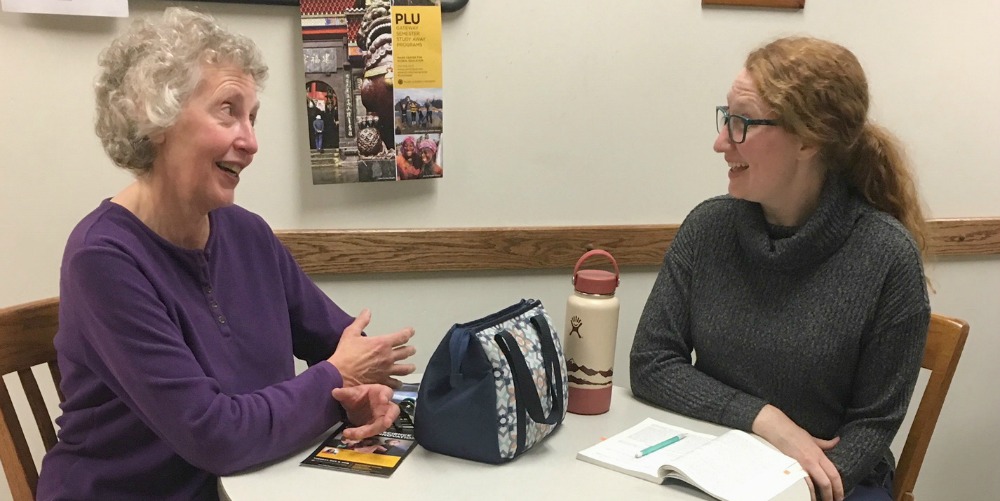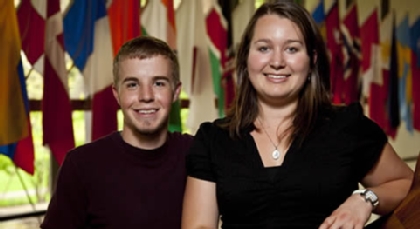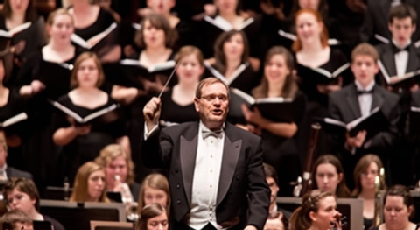Page 6 • (1,992 results in 0.044 seconds)
-

One smoky August afternoon Dr Beth Kraig and I decided to beat the heat and take shelter in the cooling confines of the University of Washington, Tacoma library, to have a cheery chat about plagues. We thought this would be a fun topic to discuss,…
wandered a long way from our original point of departure – history books, plagues, and zombie apocalypses! Though in a way, we found we had actually been answering our own question in a roundabout (typically historical) way, by following the thought-trail of why we are drawn to the topics we find ourselves researching and teaching about. I guess I’ll just have to ask my Early Modern Europe students why they think the Bubonic Plague of the 14th century still has relevance for them today. Read Previous
-

PLU Fulbright recipients ready to engage the world By Chris Albert This year, three PLU students – Eric Buley, Nicolette Paso and Kelly Ryan – received prestigious U.S. Fulbright Student Fellowships. Since 1975, 83 students from PLU have received the award. Eric Buley will be…
Research Grant. Her hope is to apply her research toward a master’s degree, and eventually doctorate, in religion. Her research project is centered on the early Reformation church ordinances that created the first state-sponsored systems of social welfare. “I am primarily interested in how theological context of each particular city influenced the social reform that it’s government enacted,” she said. She’s excited to be in Germany again. A few years ago she studied abroad there and is looking forward
-
By William Giddings, Professor Emeritus September 1995
became in 1926 the sole chemistry faculty member throughout the Depression and World War II until joined by Dr. Robert Olsen in 1947, when the Science Building (later named Ramstad Hall) was built. Although many fine chemistry graduates from the early years went on to distinguished careers in universities, industry, and governmental agencies, more than two faculty became needed to offer a fully competitive undergraduate program. Dr. John Holum came in 1958 but stayed only one year; the modern
-
The roots of the liberal arts (artes liberales) extend back into classical antiquity. Roman education, for example, progressed from basic literacy (the province of the litterator), to secondary
(410 C.E.). During the Middle Ages, monastic scribes preserved a significant body of ancient learning in Latin. However, more complete Greek learning was preserved only in the Byzantine Empire while Arab culture retained and developed ancient knowledge of numbers. The founding of universities in Europe (Bologna, Paris) established the medieval curriculum of the trivium and quadrivium. These studies provided the foundation for professional studies in Theology, Law, and Medicine. The medieval
-

Student musicians wow European audiences By Steve Hansen For the past two weeks, PLU’s Choir of the West and KammerMusikere Orchestra have been touring Germany and France, with great success. The two groups – sometimes playing together, other times apart – performed numerous concerts at…
June 13, 2011 Student musicians wow European audiences By Steve Hansen For the past two weeks, PLU’s Choir of the West and KammerMusikere Orchestra have been touring Germany and France, with great success. The two groups – sometimes playing together, other times apart – performed numerous concerts at beautiful locations like Chartes Cathedral and Luxembourg Gardens in Paris. Choir of the West and KammerMusikere Orchestra toured France and Germany this summer. In addition, the Choir of the West
-
Hosted by university pastor Jen Rude, “Because We’re Lutheran” will explore the ins and outs of Lutheranism and the principles of Lutheran higher education: what that concept means, what it
READ THE ARTICLEPODCAST: Because We’re Lutheran SeriesHosted by university pastor Jen Rude, “Because We’re Lutheran” will explore the ins and outs of Lutheranism and the principles of Lutheran higher education: what that concept means, what it looks like and how it impacts students, staff and faculty alike at PLU.Each episode will feature one or more guests from the campus community, and will focus on big topics as seen and experienced through the lens of PLU’s faith community.Episode 1In the
-
Originally Published in 1990 It would appear that Louis XIV never said: “L’ état, c’est moi.” The researches of modern historians have produced no credible witness attesting that France’s Sun King pronounced this coldly witty laconism. But just try to find a modern history of…
Should History Tell a Story? Posted by: alex.reed / May 20, 2022 May 20, 2022 By Mark JensenOriginally Published in 1990It would appear that Louis XIV never said: “L’état, c’est moi.” The researches of modern historians have produced no credible witness attesting that France’s Sun King pronounced this coldly witty laconism. But just try to find a modern history of seventeenth-century France in which it is not mentioned. “If he did not say ‘I am the state,’ it is only because it went without
-
PLU’s mission to support the education of our students and larger community on issues of diversity and justice are intimately connected to the study of the tragedy of the Holocaust.
marginalization of a minority group, such as the Jews of Nazi Germany, can lead to life-threatening situations culminating in one of the world’s modern genocides. Issues of distortion and denial make the process of reconciliation and healing less likely and serve as an insult to the memory of all those whose lives were destroyed in the Holocaust.PLU Lutecast videos of the 14th Annual Annual Conference for Holocaust Education Conference ScheduleCheck out this year’s conference schedule. ScheduleDonate
Powell-Heller Holocaust Education Conference12180 Park Avenue South, Tacoma, WA 98447-0003 -
Are you passionate about the learning and teaching of mathematics? Would you like to spend a summer in a beautiful historical city, with one of the most vibrant cultures in Europe? How about learning in small classes where instructors challenge each student to deeply engage…
Budapest Semesters in Mathematics Education (BSME) Posted by: nicolacs / February 7, 2023 February 7, 2023 Are you passionate about the learning and teaching of mathematics? Would you like to spend a summer in a beautiful historical city, with one of the most vibrant cultures in Europe? How about learning in small classes where instructors challenge each student to deeply engage with the material? Please consider Summer@BSME, a 6-week summer program in Budapest, Hungary, designed for those
-
Major in Religion 32 semester hours RELI 499: Capstone Research Seminar (offered only in Spring semester) 8 semester hours RELI coursework from Line One: Christian Traditions (RC): RELI 212, 220-229,
religion shaped the cultures of the ancient Mediterranean world. (4) RELI 220 : Early Christian History - RL, IT This course explores the social, cultural, and theological diversity and forms of self-definition of early Christian history across territories in which it emerged, including Western Asia, North and East Africa, and Western Europe. In this course, emphasis will be placed on the ways in which Christian groups established core elements flowering from the life of Jesus of Nazareth, affirmed or
Do you have any feedback for us? If so, feel free to use our Feedback Form.


